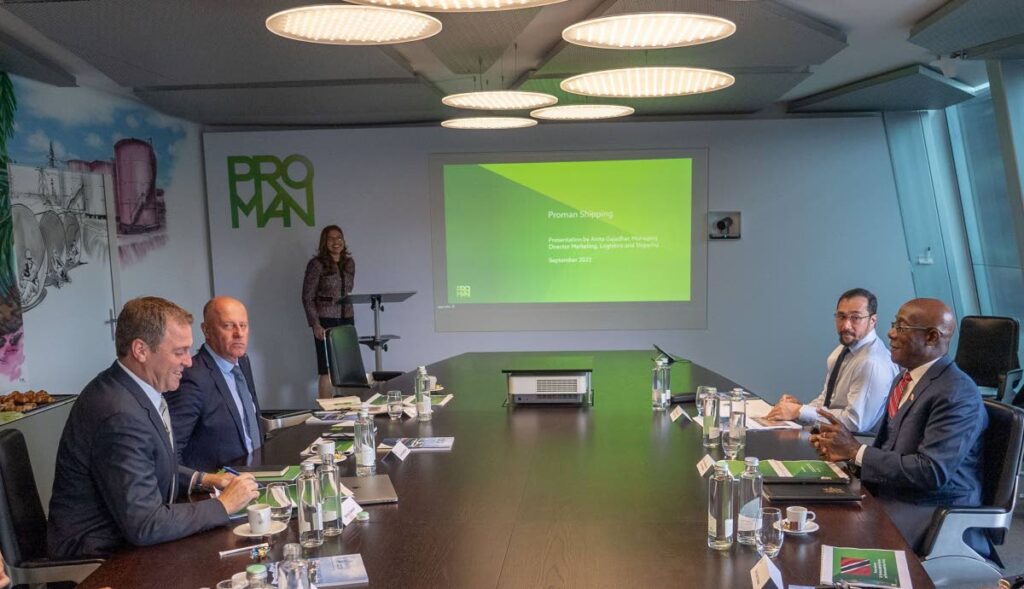Business editorial: Energy diplomacy or window dressing?

THE PRIME Minister has made a habit of taking a seemingly hands-on approach when it comes to engaging with key stakeholders – from company head honchos to politicians – when it comes to this country’s energy interests.
This week’s whirlwind trip, in which Dr Rowley met with officials from Proman in Switzerland and Germany, before meeting on Thursday with executives at British Petroleum in London, is merely the latest in a series of efforts in his energy diplomacy.
In May 2019, the Prime Minister made a similar trip, meeting with officials at BP’s headquarters in London, and EOG Resources and Shell in Houston, US. In March 2017, Dr Rowley convened meetings with BP Amoco, Shell, Exxon Mobil and EOG Resources, also in Houston.
In 2018, the Prime Minister travelled closer to home, to Caracas, where he signed the Dragon gas deal with Venezuelan president Nicolas Maduro, at an event where reporters were briefed by Dr Rowley in the corridors of Miraflores Palace.
Taking such a central role has been a risky strategy. Dr Rowley has all but invited the population to associate him with our energy prospects. The questions many have asked in relation to the outcomes of these trips have been substantial.
Some feel bid rounds have not attracted as much interest as they could have, and others feel not enough is known about what specific outcomes have been set or achieved with any of the energy companies courted.
This week, Proman announced it will invest US$1.1 billion in this country over the next decade, underlining the importance of TT to the company’s global operations.
But specifics have been scarce.
On Tuesday, a release from the Office of the Prime Minister on Proman said, “Future projects, including proposals related to upstream gas projects and proposals related to carbon capture utilisation and storage, featured heavily at today’s talks.”
The trail of breadcrumbs will lead many to wonder whether these trips amount to little more than window dressing.
The State’s outstanding plan to review the taxation regime as it relates to energy companies also looms. It may well be that some of the talks could relate to matters due to be unveiled in the budget due in a few weeks.
We should not have to speculate. It has been almost a year since Finance Minister Colm Imbert pledged to have this matter examined, as the Energy Chamber pointed out only a few weeks ago.
Dr Rowley is hardly the first leader to court energy companies and energy stakeholders. His predecessor also did so, and the PM has gone through great lengths to position his trips as being shorn of unnecessary expense.
But given the Government’s commitment to diversifying the economy, transitioning to greener energy and getting larger companies to fund this process, it is also the case that the need for transparency and accountability on all of these talks is even higher. Far too much is at stake.


Comments
"Business editorial: Energy diplomacy or window dressing?"